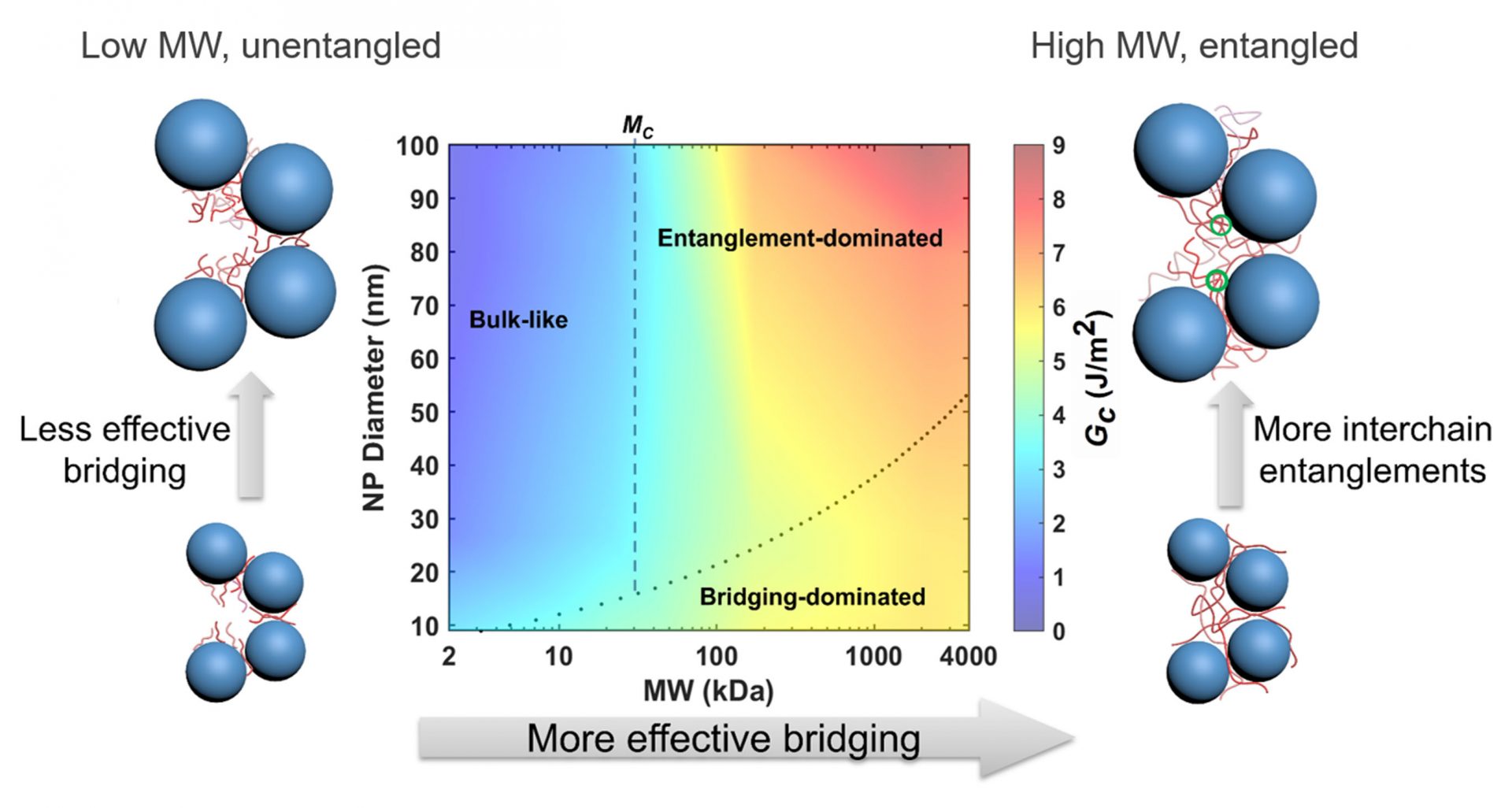- Disordered polymer-infiltrated nanoparticle films (PINFs) have applications as multifunctional coatings and membranes and provide a platform to understand the behavior of polymers that are highly confined.
- The role of polymer confinement on the PINF’s resistance to mechanical failure was investigated by measuring the fracture behavior of PINFs with varying nanoparticle size and molecular weight.
- Polymer chains toughen PINFs with small nanoparticles by bridging multiple nanoparticles; in contrast, entanglement of long chains toughen PINFs with large nanoparticles.
- These findings provide insight into the fracture behavior of nanoparticle packings with confined polymers and will guide the development nanoparticle films with improved mechanical properties

For PINFs with small nanoparticles, bridging is the dominant toughening mechanism. In contrast, for PINFs with large nanoparticles, chain entanglement in the pores of disordered packings of nanoparticles is the main mode of toughening.
Y. Qiang, S. Pande, D. Lee, and K.T. Turner, “The interplay of polymer bridging and entanglement in toughening polymer-infiltrated nanoparticle films,” ACS Nano, 16, 6372–6381 (2022). https://doi.org/10.1021/acsnano.2c00471
What Has Been Achieved: We investigate the fracture behavior of disordered polymer-infiltrated nanoparticle films (PINFs). Here, the extent of polymer confinement in PINFs was tuned over 3 orders of magnitude NPs of varying size and polymers with varying molecular weight. The results show that brittle, low molecular weight (MW) polymers can significantly toughen NP packings, and this toughening effect becomes less pronounced with increasing NP size. In contrast, high MW polymers capable of forming interchain entanglements are more effective in toughening large NP packings. Thus, we demonstrate that confinement has competing effects of polymer bridging increasing toughness and chain disentanglement decreasing toughness.
Importance of the Achievement: The results of this work provide insight into the fracture behavior of nanoparticle packings reinforced with confined polymers and will guide the development of mechanically robust highly-loaded polymer nanocomposites.
How is the achievement related to the IRG, and how does it help it achieve its goals? This work provides insight into the post-yield/fractur behavior of disordered nanoparticle packings and demonstrates a route to improve fracture toughness
Where the findings are published: Y. Qiang, S. Pande, D. Lee, and K.T. Turner, “The interplay of polymer bridging and entanglement in toughening polymer-infiltrated nanoparticle films,” ACS Nano, 16, 6372–6381 (2022). https://doi.org/10.1021/acsnano.2c00471
